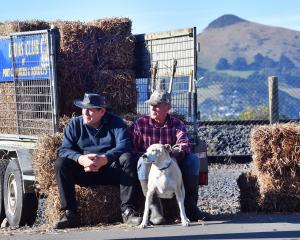This smart form of therapy uses harmless viral shells derived from rabbit haemorrhagic disease virus to deliver immunising tumour proteins.
The same approach could also be applied to a wide range of human cancers, researchers say.
This is one of several cutting-edge Otago research projects involving sciences, medical sciences and humanities which will be outlined to parliamentarians, senior ministry officials and scientists in a briefing at Parliament this evening.
The projects are being led by members of the O-Zone group of award-winning young Otago University scholars.
Dr Sarah Young, an immunologist in the university pathology department, yesterday outlined her cancer-related research, involving virus-like particles (VLP), at a meeting of the group.
"It's very promising," she said in an interview.
"This therapy is like gold in our hands.
"It's worked as well if not better than any other therapy I've ever seen."
When tumours were induced in mice they usually lived no longer than 40 days.
By contrast, 60% of mice with tumours which had later received a single therapeutic dose of the VLP vaccine lived for 80 days or more, the Otago researchers found.
And about 80% of mice which received a single preventive dose lived for 80 days or more after a tumour was induced.
Researchers had gained ethical approval to conduct "ex vivo" laboratory tests this year, involving cells removed from the body, to see if the VLP system would induce an enhanced immune response in human cells.
It was hoped to move to human clinical trials relatively soon - perhaps late next year.
All Dr Young's research, which was backed by Health Research Council funding, was ultimately aimed at benefiting human health.
"Benefiting people - that's hugely rewarding," she said.
The new vaccine approach offered potentially significant advantages over some forms of traditional cancer therapy, such as chemotherapy.
Inducing the immune system to attack only tumour cells meant a much more selective approach, rather than some other rapidly-dividing human cells, including in the stomach lining and hair, also being affected.
Vaccines also induced a "memory" of tumour cells, enabling the immune system to more readily counter any tumour recurrence.
In 2008, Dr Young was awarded a $500,000 Sir Charles Hercus Health Research Fellowship to support her research into vaccines and therapies against colon, cervical and skin cancers.
The O-Zone group convener is Dr Jacob Edmond, of Otago University's English department.
The other researchers will make presentations on a wide range of other research, including the effects of maternal obesity on subsequent offspring, learning more about human development by studying zebrafish and physics research on aspects of the quantum world.












